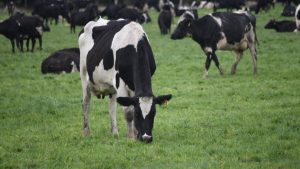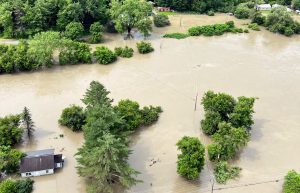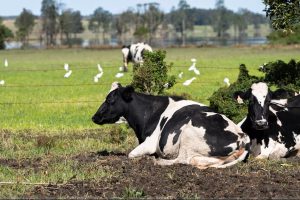
In a poll that closes on March 31, farmers can vote for either no change to the levy rate or 15, 20 or 25 per cent increases.
Last week, in defiance of its own national policy council, which had voted recommending farmers support a 20pc increase, the Australian Dairy Farmers board declared it hoped there would be no increase at all.
ADF president Rick Gladigau wrote that while the board “noted” the national policy council position, “there is a wide range of views among our state and federated members, with differences across states and even regions within states.”
Insiders called the move “unprecedented”. While the ADF board does not have to adopt the national policy council position, it’s expected.
Also making waves was the decision of the ADF National Policy Council to force a vote on the issue before some states, including the dominant Victoria, had arrived at their own positions.
While, for example, NSW Farmers Dairy Committee president Colin Thompson said his state had voted unanimously in favour of the 20pc increase, it was far less clear south of the border.
Just days after the national policy council decided to support a 20pc increase, the United Dairyfarmers of Victoria’s policy council met and resolved only to encourage farmers decide for themselves after doing their own due diligence.
The ructions could have implications for federal Agriculture Minister David Littleproud, too.
Votes are based on production rather than on a one vote, one farm system. While UDV president Paul Mumford said the system favouring large producers might put smaller farmers off voting, he said Mr Littleproud could override the outcome.
“The Minister of Agriculture has the final say,” Mr Mumford said.
He said the Minister wanted a clear indication of farmer support and would look at the popularity of the different options as well as the result based on eligible votes.
“I disagree somewhat that only the big corporates are going to get this over the line because I think there is a circuit breaker in there with the minister and that is the participation rate,” Mr Mumford said.
“I can’t speak for the minister but he will look at a very broad spectrum to understand what is right for the dairy industry going forward. And I am sure he would put into his thought process, ‘Well, I can’t just pick the top 20 farmers that are voting for a 25pc increase’.
“He would have to go back and think, ‘Well, where’s the grassroots membership and where is the general consensus of all of industry coming from?’.”
Last September, when controversy swelled around the voting options, Mr Littleproud said he would be happy to consider changes to the voting process if they were supported by industry.
“Levy settings remain for industry to decide, and the industry is able to and welcome to submit a proposal to government to change the levy process,” he said.
The Australian Dairy Farmers has called for a review of the process after the vote and both Mr Mumford and Mr Thomson said there needed to be changes.

























